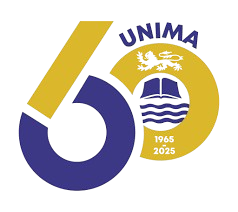MDINDO THE ENVIRONMENTALLY FRIENDLY STOVE
The most recent research product from the college is a product that is being tentatively called Mdindo stove. This is the brainchild of Vincent Sinalo, a third year student, majoring in Geography and minoring in Fine Art (Ceramics). The stove, which is made from Kaolinite clay, comprises two interlocking shapes, which can be adjusted to increase or decrease apertures for fuel, hence its versatility. The unique feature of the stove is that, unlike other designs existing on the market, the Mdindo stove accepts a wide range of materials as fuel.
So far, the project has caught the eye of people who would want to partner with Sinalo. For him, the greatest joy is not in the money that the project might bring to his pockets, but in having done something to help preserve and clean the environment, a dream that he hopes to share with other Malawians, through making his product available to them. “It is my dream that the stove will be affordable to all Malawians. If they cannot afford it, then it defeats the purpose for which I conceived it,” says Sinalo.
Apart from his obvious skill as an artist, Sinalo also comes across as a passionate environmentalist. “Malawi is facing so many problems leading to the depletion of our environment,” he observes. “Deforestation is one of the key causes of these problems. With this stove, I am hoping people will realize that charcoal is not the only source of fuel. It is meant for communities to realize that there are a lot of readily available materials around us which we do not readily recognize as fuel. These include materials such as rice husks, dry leaves, sawdust, pea stalks, sugarcane molasses, pine cones (zibalobalo) and other materials from trees and crop residues. We can process these materials or use them directly as fuel.” The working name of the stove – Mdindo – is drawn from the word “udindo”, which in turn reflects the inventor’s passion for conserving and cleaning the environment.
Drawing on comments he has received so far, Sinalo is currently improving the design of the stove, such as making the frame thicker so that it is to the nationally accepted standard. It will also have an outer metal casing, which will improve the durability of the stove. There are also plans to develop briquettes, which may be used in the stove.
Sinalo has already tried out the first prototype of his stove, which began as a class project. He also presented this prototype at a conference for innovators Crossroads Hotel in Lilongwe. So far, there are a number of organizations that have shown interest in the stove, and have offered to partner with him in the mass production of the stove. They have also given him guidance on protecting the innovation as intellectual property.
Mr Mtamandeni Mtambalika, a lecturer in Ceramics in the Fine and Performing Arts Department, expresses pride at Sinalo’s achievement. “This project is just one example of how our graduates are relevant to the community. We are producing people who can provide solutions to our societal needs as well as those of the entire globe,’ he observed.




